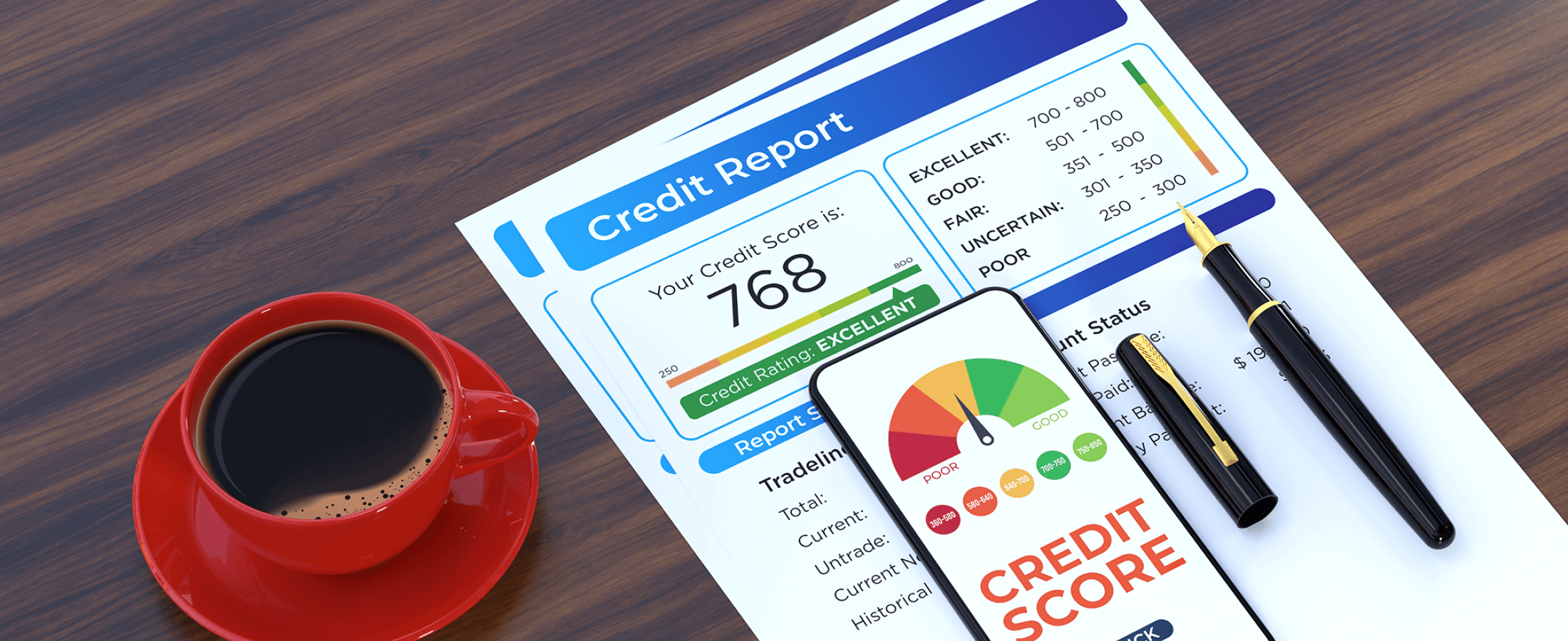
Credit score myths
Improving your credit is possible, but it’s hard to know where to start. There’s a lot of misleading information out there, and these credit myths can get in the way of improving your credit score. Your credit score is important for determining things like whether you’ll be able to qualify for a loan or credit card offers and the interest rate you’ll pay. A good credit score gives you more options for your financial journey.
It’s important to be confident when managing your credit, so here are some of the most popular credit myths debunked:
Myth: Checking my credit report will hurt my credit score.
Fact: Getting your free annual credit reports will not hurt your credit scores, and can be an important tool to make sure your information is accurate and up-to-date.
Requesting your free annual credit reports or purchasing your credit report will not affect your credit score. You can – and should – get your free credit reports from AnnualCreditReport.com every 12 months. Reviewing your credit reports regularly gives you an opportunity to quickly identify and fix any inaccurate information.
Myth: I only have one credit score.
Fact: You have multiple credit scores.
Many credit scores are available to you and lenders. Often, the score you see isn’t the exact same as the one the lender sees. Your score depends on which credit reporting company provided the information used to calculate the score, the scoring model, the type of loan you’re seeking, and even the day when it’s calculated. Because of this, it’s also normal to see slightly different numbers throughout the year and from different sources.
Many credit card and other companies have begun to offer people free access to their credit scores. This list shows companies that offer free credit scores to existing credit card customers.
Myth: Getting loan estimates from multiple lenders will hurt my score.
Fact: Shopping around for credit and comparing loan offers can help you find the best terms and for some kinds of credit, won’t impact your score much if done in a short period of time.
Comparing offers before getting loans and credit cards can help you find the right offer for your needs. Shopping around for credit cards, auto loans, and home mortgage loans could mean paying less in the long run because you’re taking time to find the best rates and terms. For most people, any negative effect on your score from multiple requests or inquiries for your credit score or report will be small, while the benefits of shopping around could be significant. You can also minimize any negative impact by doing all your rate shopping in a short amount of time.
For some types of credit, like auto and mortgage loans, when lenders offering the same type of loan request your credit score(s) within a time span ranging from 14 to 45 days, it will only count as a single inquiry. The timeframe depends on the type of loan you’re shopping for. When this timeframe is in effect, the benefits of shopping around for the best offers will greatly outweigh the impact on your credit score.
Myth: Carrying a balance on my credit cards will improve my credit score.
Fact: Paying off your credit cards in full every month is the best way to improve a credit score or maintain a good one.
Part of your credit score depends on the amount of credit you have versus the amount you’ve used – known as the credit utilization ratio. You can get your ratio by dividing your total credit card balances by your credit limits. Keeping a low credit utilization ratio — under 30 percent — shows lenders you’re responsible and have available credit. Paying off your entire balance is best and keeps the ratio low, strengthening your credit scores. Keeping a balance on your credit card could also mean that you’re spending more on the things you buy because you’re also paying interest.
Closing a credit card account can help you manage your spending and protect from identify theft if you’re not using the account. It may make sense for your financial situation, but don’t assume it will improve your credit scores. Remember, part of your credit score depends on your credit utilization ratio. You want to keep your credit utilization under 30 percent. If you close some credit card accounts, but hold the same balance, you’ll be using a higher percentage of your total credit limit, which could lower your scores.
If you plan on closing an account, make sure to adjust your spending (or pay down your existing balances faster) so you don’t increase your credit utilization ratio. If you decide to keep an unused credit account open, be sure to watch your statements to protect against identity theft and to check for unexpected fees.
Myth: You can pay companies to quickly fix your credit.
Fact: Only the passage of time, and good credit management, will make accurate negative information disappear from your credit reports. You cannot speed up the process, and neither can a credit repair company.
Any person or company that advertises a quick fix for a price may be scamming you. There’s no quick way to boost a credit score when all the information on a credit report is correct. If you want to improve your credit, check out our guidelines to build a strong credit score.
To improve your credit standing:
- Consistently pay your loans on time
- Keep your credit balance low
- Fact check your credit reports and dispute any errors
- Only apply for credit that you need
If you’re looking for some outside help, consider getting in touch with a credit counselor.
Myth: There are only three companies that create the credit reports lenders use to decide my loans options.
Fact: Equifax, Experian, TransUnion are the three nationwide credit bureaus. But, there are also other kinds of consumer reporting companies.
Other kinds of consumer reporting companies may use information such as your employment history, transaction history with a business, or repayment history for a particular product to create a credit or consumer report about you. Generally, these reports are used for purposes other than lending, like employment, tenant screening, insurance etc. Many consumer reporting companies in addition to the three nationwide credit bureaus also offer a free copy of your report every 12 months. But, some do charge a fee for you to get your report. The Bureau has put together a list of some consumer reporting companies along with information about how you can get copies of your reports.
The information in this article was obtained from various sources not associated with Adirondack Bank. While we believe it to be reliable and accurate, we do not warrant the accuracy or reliability of the information. Adirondack Bank is not responsible for, and does not endorse or approve, either implicitly or explicitly, the information provided or the content of any third-party sites that might be hyperlinked from this page. The information is not intended to replace manuals, instructions or information provided by a manufacturer or the advice of a qualified professional, or to affect coverage under any applicable insurance policy. These suggestions are not a complete list of every loss control measure. Adirondack Bank makes no guarantees of results from use of this information.
Article written by the Consumer Financial Protection Bureau (CFPB)

